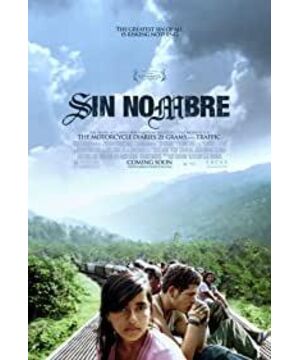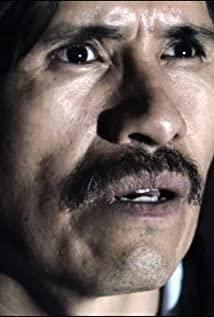In my film viewing experience, Mexican films and related film and television works, especially contemporary ones, are placed in the vast film world, just like advertising telephone poles standing on neat and tidy streets. There are all kinds of small advertisements that touch the face of life in a disorderly manner. After experiencing violent storms, it is a mottled scene.
The Mexican film, also influenced by Italian neorealism, has always been the leader in showing the naked coexistence of civilization and barbarism. The region and local culture dominate the tone of creation, but Mexican cinema has been brave enough to face the roaring state of existence so bravely and reveal the whole picture of society without modification.
Since the mid-20th century, Mexican cinema has been struggling to survive. European and American filmmakers are very interested in the cultivation of "mixed blood" in Mexican films. I don't know if this is a good thing to help in the snow, or it is a "cultural aggression" that occupies land as a camp. In short, the development of the Mexican film industry will inevitably be affected, and it has been fighting on the line of survival superior.
But the "strange things" that happened on this land have never been left out. This may be the benefit of cultural dissemination and cultural sharing. Mexican stories are also good at talking about social politics, criminal violence, and pornographic ethics, but they don’t have the arrogance of high-flying snow, nor the plainness of the lower Riba, as if there is only a loaded gun, two legs running on the death line, and that. A fretful red sun overhead.
Like "Love is a bitch" and "Border Town", "Anonymous" is also a social film that exposes the use of crime and punishment to ravage the lives of ordinary people. It is also a work that has performed well among the recent directorial feature debuts of various countries that I am concerned about. Director Kerry Fukunaga, born in the United States in 1977, is a handsome Swiss-Japanese guy. If there is no behind-the-scenes information for reference, it is difficult to imagine that such a calm and sharp film comes from the hands of a young man who first directed the film director.
The film tells the story of Sierra, a girl living in Honduras, and her father and uncle preparing to smuggle to the United States. It is indeed an issue of immigration, but it also goes deep into local ethnic conflicts and gang grievances. At the beginning, the story is like two divergent railway tracks, extending from the background of the girl Sierra and the boy Willie respectively, to the first climax of the film, the two lines merge, Willie and Sierra meet, the two Individual fates are closely linked.
Willie = Casper, two names for one person. Encountered a similar plot, mocking fate, and bowing to the irreversible life. Willie uses this name when introducing himself to both girls, and Casper only represents his gangster status. I don't know if it's okay to think so, Willie isn't a born bad boy. I use Willie to compare the little Bernito, the real badness and ungratefulness are not trained, but like the Laughing Boy, which grows out of the tender blood. Maybe Willie could be a tough guy too, if his woman hadn't been raped and killed by the boss. But he is somewhat different from the desperadoes who use human bones as dog food. This young man who still has dreams is revealed when he hides his camera.
The scene where Willie turns around to hold back his tears and anger when he learns that his woman is dead is particularly wonderful. When the eldest Limargo took Willy and the smiling boy to climb the train to rob the money, the atmosphere of unease and uncertainty created in the wind and rain and under the rain cloth is also very real. And such detailed and vivid bridges can be seen everywhere in Serra's group of pictures showing fugitives. Waiting for the train, picking up the train, hiding from the border patrol police, and the process of Serra's father disappearing, one has to wonder whether such a picture is a creation or a documentary.
When showing the contradiction between gang forces, there are two sets of shots that are intriguing. Residents throw friendly fruit at the crowd on the roof as the train zips across the Ramallah site, and when the train enters the Shawara area, even school kids throw at people on the train go to stone. Obviously, this contradiction is irreconcilable, and it has directly escalated into the struggle within the nation.
There are grievances and grievances between the gang and the gang, and there is also a ruthless treatment of comrades in the gang like the autumn wind and few leaves. Willie, who killed the boss Rimargo, has nowhere to hide, and the pursuit order can even be reported to the gang boss in New York. There is no doubt that this fate belongs to the gangsters from the beginning. Even if they are covered with the same tattoos, they make the same gestures when they meet each other, and when they violate the gang rules, they will be executed the same way, no nonsense.
As Willie uses his abilities to help the runaways, he gains the love of the girl Sera. But he didn't want to hurt Sera, so he jumped off the train alone. Sera secretly got out of the car with him, and Willie turned around to see her, and I was shocked too, and I knew it wasn't going to end well. Although I so hope to use art to rebel against a life and give "wicked" Willy a chance.
It was dramatic to me when Willie met Laughing Boy on the frontier where there was a new life across the creek. Maybe many people feel different from me, and the cold reality should be the result. In my heart, I attached a beautiful fantasy to two characters who had no suspense. Because I had hope for the Laughing Boy, I felt the dramatic impact in my heart. Of course, thinking about it now, the way the film is handled is mature and objective.
In the end, Sera picked up the phone, pressed the phone number that her father had forced her to memorize, and the moment she was connected to the airwaves, I saw her face, and all kinds of thoughts came to my mind. It's not easy! Why is life so hard?
Serra once told Willie about the psychic helping her with divination, "I was able to get to America, not because of God's protection, but with the help of the devil." Classic lines. Director Kerry Fukunaga may have infinite compassion in his heart when he learned about the smuggling tragedy before making this film. Smuggling is not the way to solve the problem, it is fundamental to change the living conditions of the local people. The tragic state of God's neglect, the devil could not bear to stand idly by.
The result is quite satisfactory! Although the lives of everyone in the film are devastated, life has to go on. Serra is heading farther north, and although Uncle Sera is on his way back home, he will go north again one day. America is not a sanctuary for everyone, it also chooses the lucky and hopeful, and that is the harsh reality of life.
View more about Sin Nombre reviews











